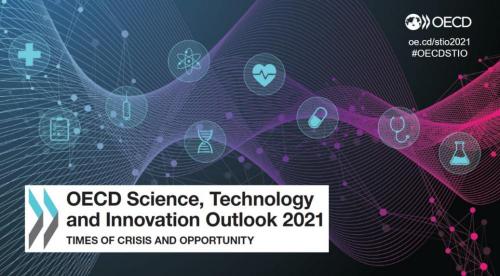
Key findings
http://www.oecd.org/sti/science-technology-innovation-outlook/crisis-and...
- This edition focuses on the COVID-19 pandemic, which has triggered an unprecedented mobilisation of the science and innovation community. Public research agencies and organisations, private foundations and charities, and the health industry have set up an array of newly funded research initiatives worth billions of dollars in record time.
- Science and technology offer the only exit strategy from COVID-19. They have played essential roles in providing a better understanding of the virus and its transmission, and in developing hundreds of candidate vaccines over a very short period. The pandemic has underscored more than in other recent crises the importance of science and innovation to both preparing for and reacting to upcoming crises.
- The pandemic has also stretched research and innovation systems to their limits, revealing gaps that need filling to improve overall system resilience to future crises. It is a wake-up call that highlights the need to recalibrate STI policies so that they better orient research and innovation efforts towards sustainability, inclusivity and resiliency goals.
https://www.oecd.org/sti/science-technology-innovation-outlook/
From climate change to population ageing to far-reaching geopolitical adjustments, the world is facing unprecedented changes marked by uncertainties and unknowns. These are exacerbated by disruptive shocks, such as the current Covid-19 pandemic crisis. The fast pace of technological change, including developments in artificial intelligence and synthetic biology, adds to these uncertainties and makes policy oversight of emerging technologies increasingly difficult.
These developments present opportunities and challenges for science and innovation (S&I) policy. In a time of rapid change and high uncertainty, responsible policy-making requires identifying and preparing for new and unexpected developments. Accordingly, the COVID-19 crisis has triggered an unprecedented mobilisation of the science and innovation community. Public research agencies and organisations, private foundations and charities, and the health industry have set up an array of newly funded research initiatives worth billions of dollars in record time. Science is the only exit strategy from COVID-19.
Science and innovation have played essential roles in providing a better understanding of the virus and its transmission, and in developing hundreds of candidate therapeutics and vaccines over a very short period. Digital technologies have enabled large parts of the economy and society to continue to function, mitigating the impact of COVID-19. The pandemic has underscored more than in other recent crises the importance of science and innovation to being both prepared and reactive to upcoming crises. The pandemic has also stretched research and innovation systems to their limits, revealing gaps that need filling to improve overall system resilience and preparedness for future crises. It is a wake-up call for all and highlights the need to re-set science, technology and innovation (STI) policies to better equip governments with the instruments and capabilities to direct innovation efforts towards the goals of sustainability, inclusivity and resiliency.










Add new comment